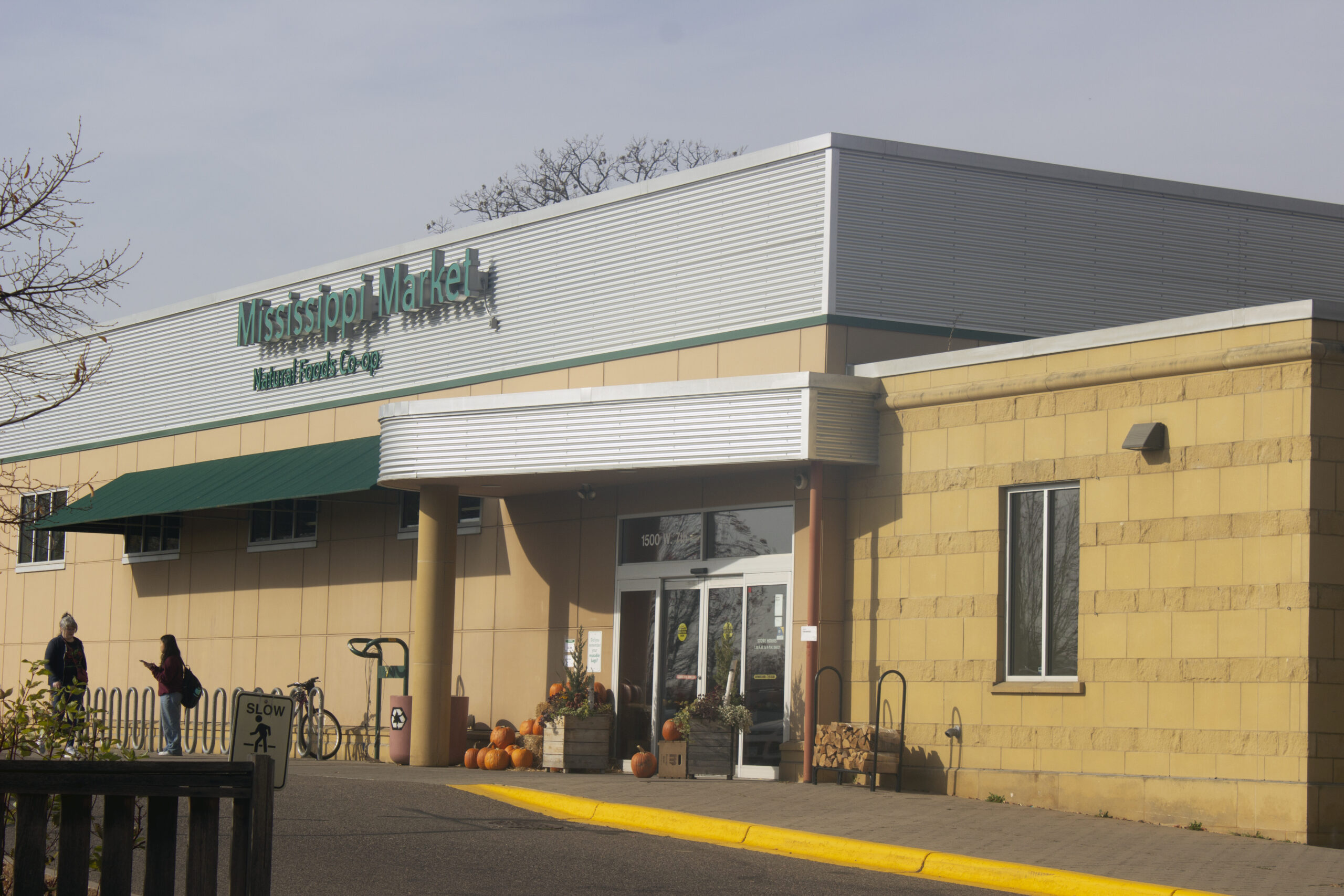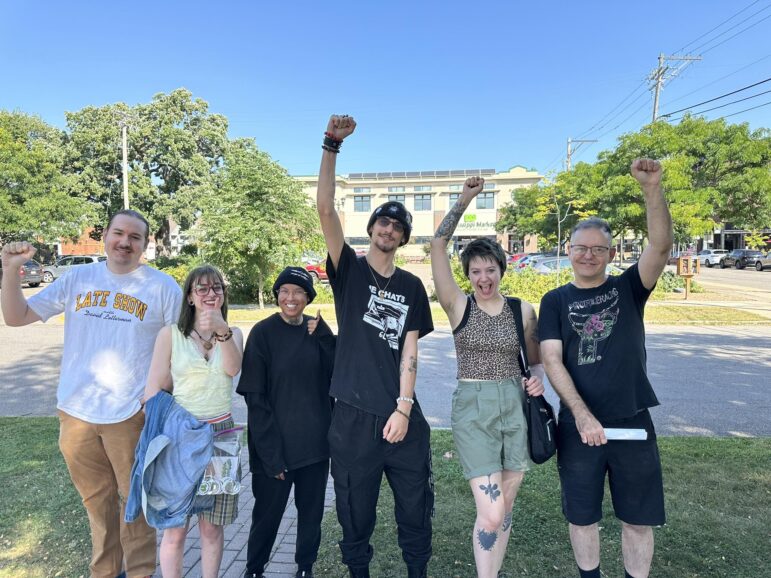
The West 7th location of Mississippi Market Co-op, shown here, opened in 2009, but the co-op has been operating since 1979. Photo by Amie Stager.

Share
When Rowan Garrigan aged out of her mother’s health insurance, she joined her sister working for the local grocery co-op, which she knew offered benefits.
“I always liked organic food, I always liked co-ops,” she said. She has worked at the West Seventh Street location of Mississippi Market Co-op for the past three and a half years, first in the deli. She says she enjoys her work now as a cheese buyer, cutting slices and researching products.
On October 9, 101 workers from across Mississippi Market Co-op’s three locations in the Twin Cities voted in a union election, and 82 workers voted yes to union representation. Around 158 employees will be represented by United Food and Commercial Workers International Union (UFCW) Local 1189, which also represents thousands of health care, food processing, cannabis, and other retail workers in Minnesota and western Wisconsin, including workers at the Wedge Co-op in Minneapolis, the River Market Co-op in Stillwater, Minn., and the Whole Foods Co-op in Duluth, Minn.
The other Mississippi Market locations are on East Seventh Street and Selby Avenue in St. Paul, Minn. According to a press release from UFCW Local 1189, workers at all three stores have cited unpredictable schedules, unrealistic attendance policies, and inconsistent management as reasons for forming a union.
“I’m filled with thankfulness and joy about finally getting to have our concerns addressed,” said Erik Zakis, who works at the Selby Avenue location, in the press release.
Workers had previously tried and failed to organize a union in 2018. Workday Magazine published an anti-union letter written by the general manager at the time. According to Garrigan, a lot of long-term employees left after 2018. She said part of the success of the current campaign can be attributed to a change in management leadership, but mostly to the strategy of the workers. “We didn’t go public until we knew we’d have a majority of the vote,” she said.

Garrigan said she wants to see workers protected from being shifted to another department without their permission. She said she is also excited to advocate for a change to the attendance policy, which is “not realistic.”
“If you get so many points, you’re automatically fired,” she said. “It doesn’t count for your experience, or what role you play. Even if you have a doctor’s note, you still get a point. For new employees who haven’t had time to accrue enough sick time, it just meant that we were firing people essentially for getting sick.”
She said the co-op used to offer time off to recover from Covid-19. “Right after they ended that, a new employee got Covid-19, and they didn’t have enough points and got fired,” she said. “The pandemic absolutely changed the way people thought about what is fair.”
Garrigan said that usually one or two co-op members show up to board meetings, but at a meeting after the union drive went public in September, 36 co-op members showed up ready to defend the workers. “It was absolutely incredible,” she said. “A lot of them have noticed the turnover, that these people they used to shop from, these members of their community, aren’t there anymore.”
After they won their election, the Worker Organizing Committee wrote a letter:
“We were nervous about initiating this process, because we know that management, even progressive co-op management, can react very negatively to workers standing up for their rights. We approached this process with the belief that unionization is not inherently adversarial, and we felt that approach reciprocated. We were allowed to make this decision wholly for ourselves without any pressure from management, and we know that’s not always the case for workers.”
Before the election, Minnesota Women’s Press reported that Mississippi Market Co-op CEO Catherine Downey explained in a letter to workers that she refused to voluntarily recognize the union because “It is an important decision that should be made through a free and fair election.” Downey sent a statement to Minnesota Women’s Press: “We are confident that our employees will study the issue and make a decision that is right for them and their families. We will respect their choice.”
Workday Magazine reached out to Mississippi Market Co-op for comment but did not receive a response by the time of publication.
Cooperatives are businesses that are owned and democratically controlled by customers or workers, or both. According to a study on the geography of food co-ops in the U.S., Minnesota has one of the highest concentrations of these kinds of cooperatives than any other state. In the 1970s, a resurgence of the co-op movement in Minnesota faced ideological and violent struggles while seeking to revolutionize the food system.
Growing up, Garrigan’s parents taught her family the importance of history and how collective action could improve quality of life for working people. “We were on a road trip once, and my dad made a point to stop at Mother Jones’s grave,” she said. “It’s really easy to feel like you can’t do anything, but I think starting in your own community, in your workplace, with the people you see every day, start there.”

